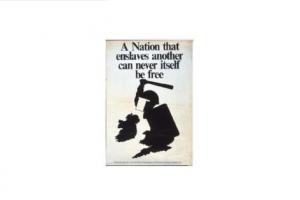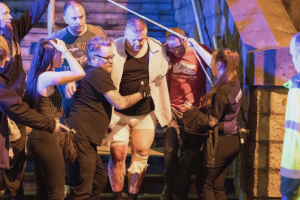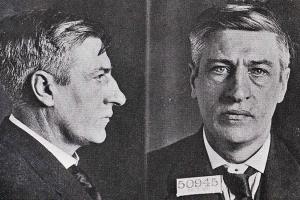Global Left Midweek - May 8, 2019
Portside
 I believe in reaching out. I believe in standing my ground too. We must strive to see things from the perspective of others. We must also be true to our beliefs, our promises. I believe that we should look after one another and be the helping hand when someone falls. I believe in the unity of our nation in all its colours and the unity of all our people. I believe in our freedom.
I believe in reaching out. I believe in standing my ground too. We must strive to see things from the perspective of others. We must also be true to our beliefs, our promises. I believe that we should look after one another and be the helping hand when someone falls. I believe in the unity of our nation in all its colours and the unity of all our people. I believe in our freedom.
 Europeans who think the current crisis is unique forget that between 1845 and 1848, 1.5 to 2 million Irish fled their famine-blackened land (while another million or more starved to death) in large part due to the same kind of economics Europe is currently trying to force on countries like Ireland, Portugal, Italy, Greece, Spain, and Cyprus. Today, the migrants are from Syria, Somalia, Yemen, Iraq, Afghanistan, and Libya, but the policies are the same.
Europeans who think the current crisis is unique forget that between 1845 and 1848, 1.5 to 2 million Irish fled their famine-blackened land (while another million or more starved to death) in large part due to the same kind of economics Europe is currently trying to force on countries like Ireland, Portugal, Italy, Greece, Spain, and Cyprus. Today, the migrants are from Syria, Somalia, Yemen, Iraq, Afghanistan, and Libya, but the policies are the same.
 The Democratic Unionists Party’s support for British Conservatives denies us the Tory collapse and second election which could see a socialist leader swept to power. Whilst Britain continues its faux-neutral role in Ireland, true recourse to justice is stunted; women are still denied bodily autonomy; and right-wing extremists continue to prop up a government whose official policy powers in Northern Ireland denies all of us self-determination.
The Democratic Unionists Party’s support for British Conservatives denies us the Tory collapse and second election which could see a socialist leader swept to power. Whilst Britain continues its faux-neutral role in Ireland, true recourse to justice is stunted; women are still denied bodily autonomy; and right-wing extremists continue to prop up a government whose official policy powers in Northern Ireland denies all of us self-determination.
 The attack in Manchester was likely by Sunni radicals (ISIL has claimed it), and came two days after President Trump blamed all terrorism on Shiite Iran at a speech in Saudi Arabia, the proponent of a form of extreme Sunni supremacism. In 1996, Manchester had also been victimized by a bomb at a civillian center; in that instance left by the Provisional IRA. The question is: can anything be learned from looking at 1996 and 2017 in the same historical frame?
The attack in Manchester was likely by Sunni radicals (ISIL has claimed it), and came two days after President Trump blamed all terrorism on Shiite Iran at a speech in Saudi Arabia, the proponent of a form of extreme Sunni supremacism. In 1996, Manchester had also been victimized by a bomb at a civillian center; in that instance left by the Provisional IRA. The question is: can anything be learned from looking at 1996 and 2017 in the same historical frame?
 When Irish left-wing labor leader James Larkin arrived in the United States he joined the Industrial Workers of the World (Wobblies) and the Socialist Party. A supporter of the Bolshevik Revolution, Larkin was arrested during the 1919 Red Scare and sentenced to hard labor at Sing Sing. There he was visited by Charlie Chaplin who described the prison as "grimly medieval," and wondered "what fiendish brain could conceive of building such horrors."
When Irish left-wing labor leader James Larkin arrived in the United States he joined the Industrial Workers of the World (Wobblies) and the Socialist Party. A supporter of the Bolshevik Revolution, Larkin was arrested during the 1919 Red Scare and sentenced to hard labor at Sing Sing. There he was visited by Charlie Chaplin who described the prison as "grimly medieval," and wondered "what fiendish brain could conceive of building such horrors."
Spread the word